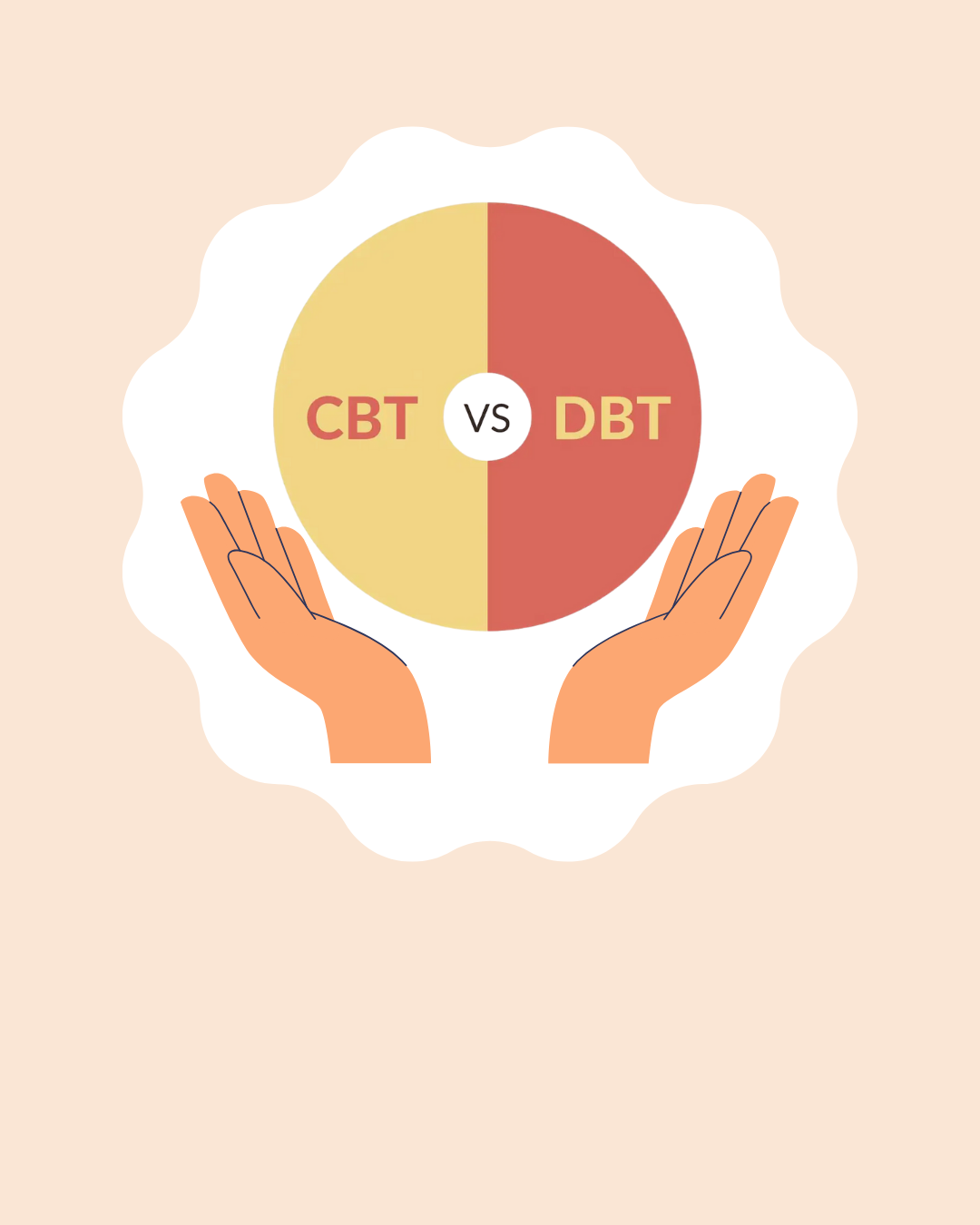
What is CBT?
CBT is Cognitive Behavioral Therapy and is a widely used therapy that focuses on identifying and challenging negative thought patterns that contribute to emotional distress. It operates on the principle that thoughts, emotions, and behaviors are interconnected – by changing the way we think, we can change how we feel and behave.
How is DBT Different?
While Cognitive Behavioral Therapy (CBT) is an excellent option for those who need help challenging negative thinking, Dialectical Behavior Therapy (DBT) is a more structured and comprehensive approach for individuals who struggle with intense emotions, impulsivity, or a lack of distress tolerance. DBT expands on traditional CBT by incorporating mindfulness, acceptance strategies, and emotion regulation skills. It helps individuals change unhelpful behaviors and develop the ability to accept emotions and tolerate distress without reacting impulsively.
At The DBT Center of Utah, we offer a comprehensive DBT program, including individual therapy, skills groups, phone coaching, and therapist consultation, to provide the support needed to create lasting change.
Core Differences Between DBT and CBT
|
Aspect |
CBT |
DBT |
|
Focus |
Changing negative thoughts and behaviors |
Balancing thoughts and behaviors between accepting and changing elements in life |
|
Approach |
Cognitive restructuring |
DBT skills training and integration into a life worth living |
|
Structure |
Individual therapy |
Weekly Individual therapy, weekly skills training group, 24/7 phone coaching |
|
Emphasis |
Logic and problem-solving |
Distress tolerance, interpersonal skills, emotion regulation, problem-solving, behavior change, and mindfulness |
When Might DBT Be More Effective?
DBT may be a better fit if you:
-
Experience intense emotions that feel overwhelming or out of control almost everyday
-
Engage in impulsive behaviors that negatively impact your life
-
Struggle with self-harm, suicidal thoughts, or chronic distress – it seems like pain will never end
-
Have difficulty maintaining stable relationships due to emotional reactivity to others or giving up your self-respect so someone will like you
-
Feel that traditional talk therapy (like CBT) hasn’t provided enough practical coping tools
Which Therapy is Right For Me?
When deciding which therapy is right for you, there is no one correct answer. The success of therapy depends on a range of factors. However, while CBT and DBT are both effective, the right approach depends on your unique needs. If you feel like traditional therapy has not worked for you in the past or you continue to experience intense emotions, difficulty tolerating distress, or impulsive behaviors, DBT’s structured approach may offer the support and skills you need.
If you’re still wondering whether DBT is the right fit for you, contact us today for a free consultation! We’re happy to help you make an informed decision about whether or not DBT is right for you. The DBT Center of Utah team is here to support you on your journey to building a life worth living.

